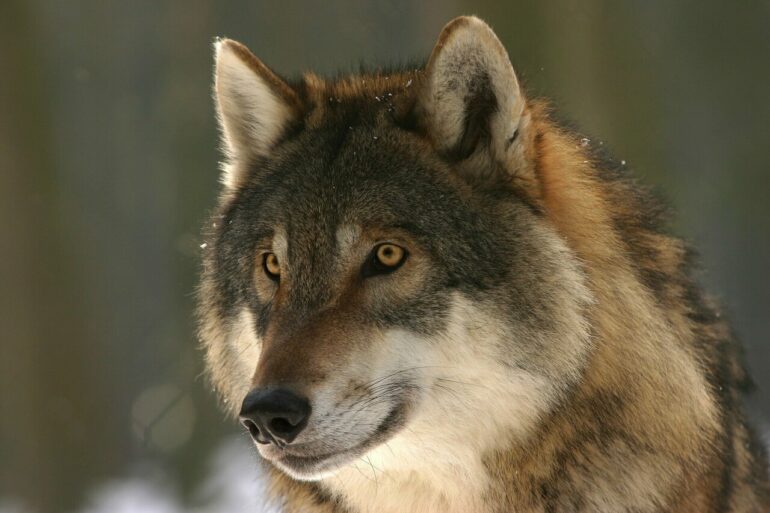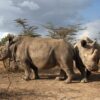Can wolf personalities change ecosystems? According to the latest research from the Voyageurs Wolf Project, published in Frontiers in Ecology and the Environment, they can.
Previous work by the Voyageurs Wolf Project demonstrates that wolves can alter the creation of wetlands by killing beavers.
Observations from the field indicated that some wolves were much better at ambushing and killing beavers and, in turn, altered more wetlands than other wolves. The researchers suspected that individual wolf personalities were responsible for this pattern.
“Most dog owners are convinced their dogs have personalities. We suspected wolves have personalities as well and that this difference can be seen in differences in predation and hunting behavior,” said co-author Tom Gable, Ph.D., a postdoctoral researcher and project leader with the Voyageurs Wolf Project.
“A successful ambushing personality requires that wolves wait at ponds or along beaver feeding trails. Certain individual wolves wait more often and much longer than other wolves, even from the same pack,” said lead author Joseph Bump, Ph.D., an associate professor in the Department of Fisheries, Wildlife and Conservation Biology at the University of Minnesota.
To figure out how wolf personalities might be connected to wetland creation, the project team assessed the role of personality using data from eight pairs of wolves across six packs from 2019 to 2020. They compared the number of times wolves from the same pack, which lived in the same or similar habitats and conditions, attempted to ambush beavers and the number of times the wolves were successful at killing beavers.
This allowed the researchers to control many of the variables that might influence hunting behavior, such as the number of beavers in a wolf’s territory, genetics and environmental conditions.
The researchers found:
There was significant variation in the amount of time pack members spent ambushing beavers and in the number of beavers killed by pack members. Some wolves killed 229% more beavers than other pack members and spent 263% more time ambushing beavers than other pack members. This large variation in hunting behavior between wolves in the same pack is evidence for personality-driven differences in wolf predation.
“Wolves with strong beaver-killing personalities appear to be disproportionately responsible, relative to the wolf population as whole, for altering wetland creation and the associated ecological effects,” said Gable.
Wolves are unlikely to be alone in this capacity. There is good reason to believe other wildlife have personality differences that have different ecosystem impacts.
For example, some cougars appear to have beaver-killing personalities and some American badgers are especially good at preying upon prairie dogs, which are ecosystem engineers in grasslands.
More generally, the authors expect that predator personalities will impact ecosystems more substantially whenever and wherever predators kill species that are ecosystem engineers.
“But do wolves that hunt beavers beget wolf packs with more beaver-hunting wolves? That is where this research gets even more interesting,” said Bump.
The presence of wolf personalities suggests wolf cultures may exist because personalities are a necessary precursor for cultural formation in animals.
Answers to that question will have to wait for long-term data as the project continues.
More information:
Joseph Bump et al, Predator personalities alter ecosystem services, Frontiers in Ecology and the Environment (2022). DOI: 10.1002/fee.2512
Provided by
University of Minnesota
Citation:
How wolf personalities can alter wetlands (2022, June 6)



